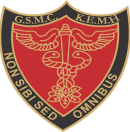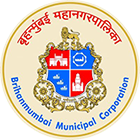

KING EDWARD MEMORIAL HOSPITAL
SETH GORDHANDAS SUNDERDAS MEDICAL COLLEGE
बृहन्मुंबई महानगरपालिका रुग्णालय



KING EDWARD MEMORIAL HOSPITAL
SETH GORDHANDAS SUNDERDAS MEDICAL COLLEGE
बृहन्मुंबई महानगरपालिका रुग्णालय


The birth and growth of the department
The Division of Nephrology, conceived in 1962, originated in the early 60s due to the foresight of the late Dr. P. Raghavan, who could be deemed responsible for establishing an independent branch of Nephrology today. The Department of Medicine had received a gift of an Alwall’s hemodialysis machine through the Swedish philanthropist Mr. Alex Axison Johnson in 1962. From humble beginnings, the division grew over the years by introducing newer dialysis systems to supplement the original Alwall’s kidney. This was possible due to the guidance and efforts of Dr. Smt. V. N. Acharya and her band of dedicated workers, which included Mr. Claud Lobo and Sr. Bagayatkar. The growth of the department's occurred through the induction of generous aid received from Rockefeller Foundation, N.M. Wadia Trust and the Dr. P. V. Cherian Trust. The provision of dialysis services soon led to the possibility of renal transplantation. In May 1965, the first-ever transplant (a Cadaver kidney transplant) was performed at these institutions. Realizing the need for an academic program that would cater to the growing needs of the ailing renal population, the division sought and obtained the status of rea cognized training institute for the National Board of Examination in the sub-specialty of Nephrology (1977). After that, with the introduction of the D.M. degree in nephrology by the University of Mumbai in 1986, this division was recognized as a department that then obtained the recognition of the Medical Council of India. To date, the institution has produced and continues to make nephrologists who have earned a name for themselves, both nationally and abroad.
Achievements and milestones:
The Division had many achievements that placed it among the premier divisions of the country.
Peritoneal Dialysis – The department runs a state-of-the-art peritoneal dialysis program catering to more than 50 underprivileged patients who are provided PD fluid free of charge. We have percutaneous and laparoscopic PD catheter insertion facilities and round-the-clock support for managing PD complications.
Future vision:
The department of nephrology plans to start the following services in the near future –
Location:
The Department of Nephrology is located on the second and third floor of the Old building of the KEM Hospital. The American Jewish Joint Distribution Committee renovated part of the dialysis unit in association with the State of Israel. The Third floor houses the Dr. M.D. Motashaw Memorial Renal Transplant Unit and the Aditya Textile Renal Research Laboratories. There is also Dr. Vidya N. Acharya Interventional Nephrology unit which has a state-of-art operation theatre to facilitate surgical procedures. In addition to the Intensive Care unit for transplant patients, the Department has an intensive care area devoted to patients with nephrology problems. There is space designated for departmental office and record keeping. The department also houses a state of art museum that embraces antiquities from 1962 and helps us understand the history of nephrology as it evolved. The department also has a library which houses all the recent books on the subject. A computer room and a full-time CCT also cater to the department's ongoing research activities. There is a seminar room (seating capacity = 70) equipped with high-tech audio-visual facilities to aid in the department's educational activities. The Hemodialysis unit is on the 2nd floor of the old hospital building. Currently, it houses 17 hemodialysis stations. It is close to a seven-bed ICU area, which forms part of the Nephrology department. Dialysis services are working 24*7, and emergency dialysis is provided to all patients, including patients with HIV, HBV, and HCV infections.
The dialysis unit has an allocated area measuring 200 sq ft., wherein the Water Treatment Plant is housed. The Water Treatment Plant has been designed to provide AAMI Standard water for dialysis. The water supply to this plant comes from the Municipal Corporation of Greater Mumbai (filtered and chlorinated water).
The dialysis unit has two designated areas:
The department is also equipped with portable RO plants, which facilitate bedside dialysis for critical patients in ICUs. Dr. Vidya N. Acharya Interventional Nephrology unit is situated on the third floor in ward 34A. This hones a C- Arm and USG machine. We are also planning to extend the facilities to create AV fistulas.
Aditya Textile Renal Research Laboratories
Department embodies state-of-the-art laboratory services equipped with the latest technology to conduct all hematological, microbiological, and urinary investigations required in the care of kidney patients. Laboratory staff includes one senior scientific officer (Dr Anand Naigaonkar, PhD in Science- stem cell research), five technicians, and five support staff. The laboratory has a fully automated biochemistry analyzer, fully automated hematology analyzer, osmometer, electrolyte analyzer, pH Meter.
Research wing
Department owns a fully functional research wing that is well staffed with 3 clinical research coordinators and has cold storage facilities for samples and a digital storage facility.
Inpatient beds
Department is allotted 43 beds for indoor patients in the following wards – Ward 34 [22 beds], 34A [15 beds], ward 12 [4 beds], ward 4 [2 beds].
Faculty |
Designation |
Qualification |
Teaching experience |
Email ID |
Photos |
Dr. Tukaram Jamale |
Professor and head |
MD, DM (Nephrology) |
11 years |
tukaramjamale@yahoo.co.in |
|
Dr. Divya Bajpai |
Professor (Addl) |
MD, DM (Nephrology) |
9 years |
divyaa24@gmail.com |
|
Dr. Sayali Thakare |
Assistant professor |
MD, DM (Nephrology) |
7 years |
thakare.sayali@gmail.com |
|
Dr Sreyashi Bose |
Assistant professor |
MD, DM (Nephrology) |
4 years |
sreyashi.bose@gmail.com |
|
Dr Chintan Gandhi |
Assistant Professor (Bonded) |
MD, DM (Nephrology) |
3 years |
dr.chintanpgandhi@yahoo.in |
|
Dr Tulsi Modi |
Assistant Professor (Bonded) |
MD, DM (Nephrology) |
3 years |
tulsimodi02@gmail.com |
|
Non-teaching staff of the department
Resident Doctors |
6 |
House officer/fellows |
3 |
Nursing Staff |
25 |
Senior scientific officer (Lab) |
1 |
Laboratory Technicians |
14 |
Laboratory Assistant |
4 |
Laboratory cleaning staff |
1 |
Dietician |
1 |
Medical Social Worker |
1 |
Administrative Staff |
2 |
Clinical research coordinator |
3 |
Cleanliness staff |
15 |
Monday – Chronic kidney disease clinic
Tuesday – New patient clinic
Thursday – Morning- Transplant clinic, Afternoon–Glomerulonephritis clinic
Friday – 1st : Tubulopathy clinic & Pediatric Nephrology clinic
2nd : Lupus nephritis clinic
3rd : Hemodialysis &Peritonial Dialysis clinic
4th : Hemodialysis &Transplant workup clinic
Community activities: Department participates in regular camps for patient education and health screening. Faculty members are actively involved in patient advocacy and community awareness on various media platforms.
The applications for observer-ship should be addressed to :
The Dean,
Seth GS Medical College & KEM Hospital,
Acharya Donde Marg,Parel, Mumbai 400 012
India
An Observership fee is Rs.3200/- per month.
The Department teaching activities are as follows:
Time |
Monday |
Tuesday |
Wednesday |
Thursday |
Friday |
Saturday |
Sunday |
7 – 8.30 |
Ward Round Resident |
Ward Round Resident |
Ward Round Resident |
Ward Round Resident |
Ward Round Resident |
Ward Round Resident |
Ward Round Resident |
8.30 – 9.00 |
Ward Round by faculty |
O.P.D. 8.30 – 3.00 |
Ward Round by faculty |
Ward Round by faculty |
Ward Round by faculty |
Ward Round by faculty |
Ward Round by faculty |
9.00 – 10.00 |
Apprasial of New cases / Symposium |
Apprasial of New cases / Guide lines |
Sub-speciality OPD |
Nephro /Path Meeting CPC 9 – 11.00 |
Apprasial of Ward cases to Consultant |
||
10– 12.30 |
Symposium |
New Cases/ followup |
Teaching grand rounds |
Transplant clinic |
Sub-speciality OPD |
Round/ WARD Consultant 11 – 12.30 |
Emergency on Calls onwards |
1.30 – 4.00 |
Renal Clinic / Case discussion CKD |
Reports / Followup OPD Patients & Rounds |
1st Journal Club 2nd Journal Club 3rd Journal Club 4th Mumbai Nephro. Group meeting |
Renal clinic follow up Glomerular Disease Vasculitis SLE / |
1.Case presentation 2.Nephro. meet. 3 Death Audit Dialysis/ Transplant Meeting 4.Case presentations |
1.Theory paper 2.Question writing 3.Mumbai Nephro. Teaching Web Cast |
|
4.30 – 5.00 |
Reports & Evening rounds |
Evening rounds |
Reports & Evening rounds |
Reports & Evening rounds |
Evening rounds Reports discussion |
|
Workshop/CME: Department conducts regular programmes for the training and education of nephrologists and primary care physicians. These are conducted in both physical and hybrid modes and are MMC accredited.
Department is actively involved in clinical research in the following areas of nephrology –
Following projects are currently approved and on-going –
Department of nephrology –
Email ID
Infonephrology@kem.edu
VNAGNR.kemh@gmail.com
Phone no. 02224107100, 022-24107534, 02224107405
Dr Tukaram Jamale
Dept of Nephrology. Wd no 34A, old hospital building,
3rd floor,
KEM Hospital, Parel,
Mumbai 12
tukaramjamale@yahoo.co.in
Dr. Divya Bajpai
Dept of Nephrology. Wd no 34A, old hospital building,
3rd floor,
KEM Hospital, Parel,
Mumbai 12
divyaa24@gmail.com